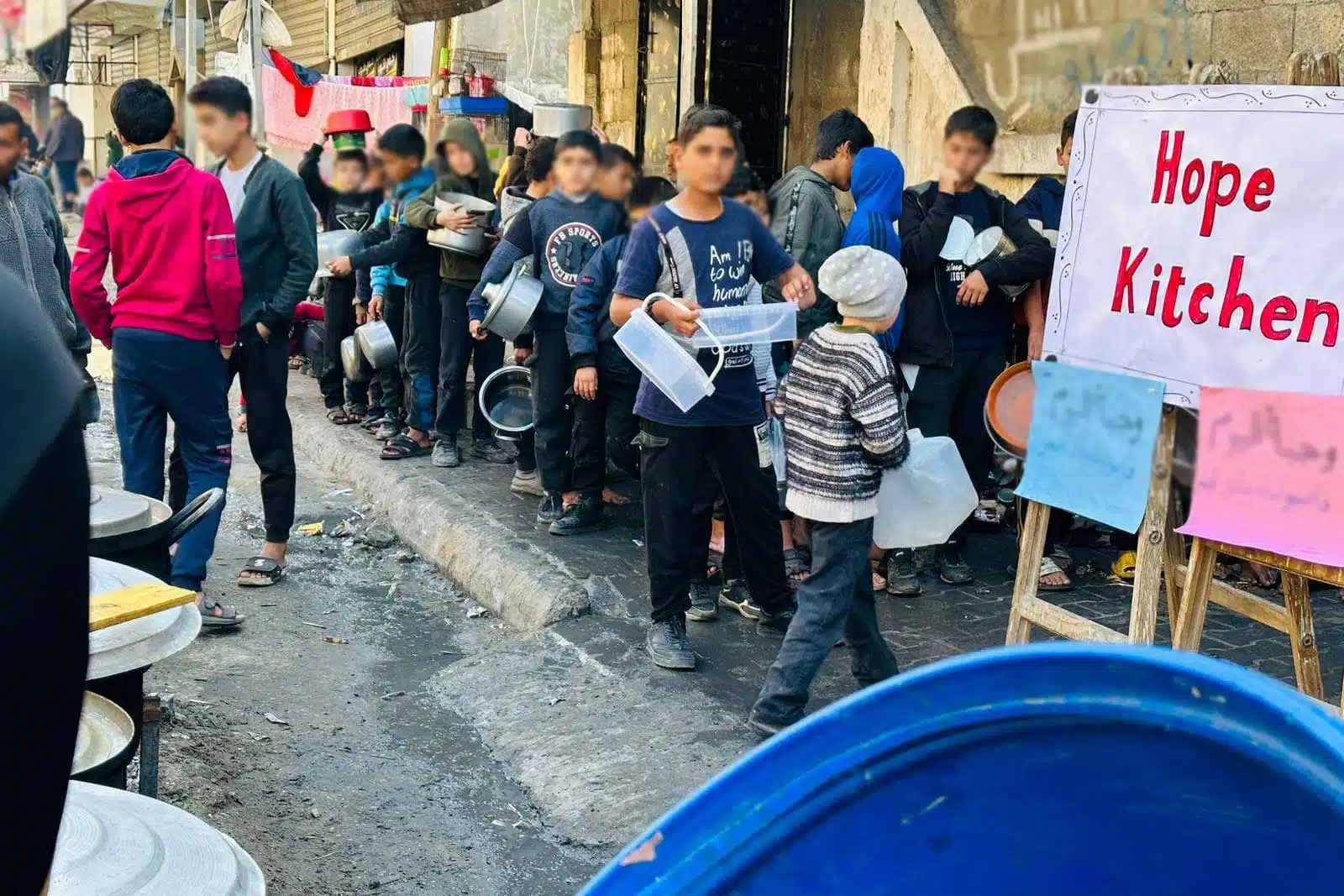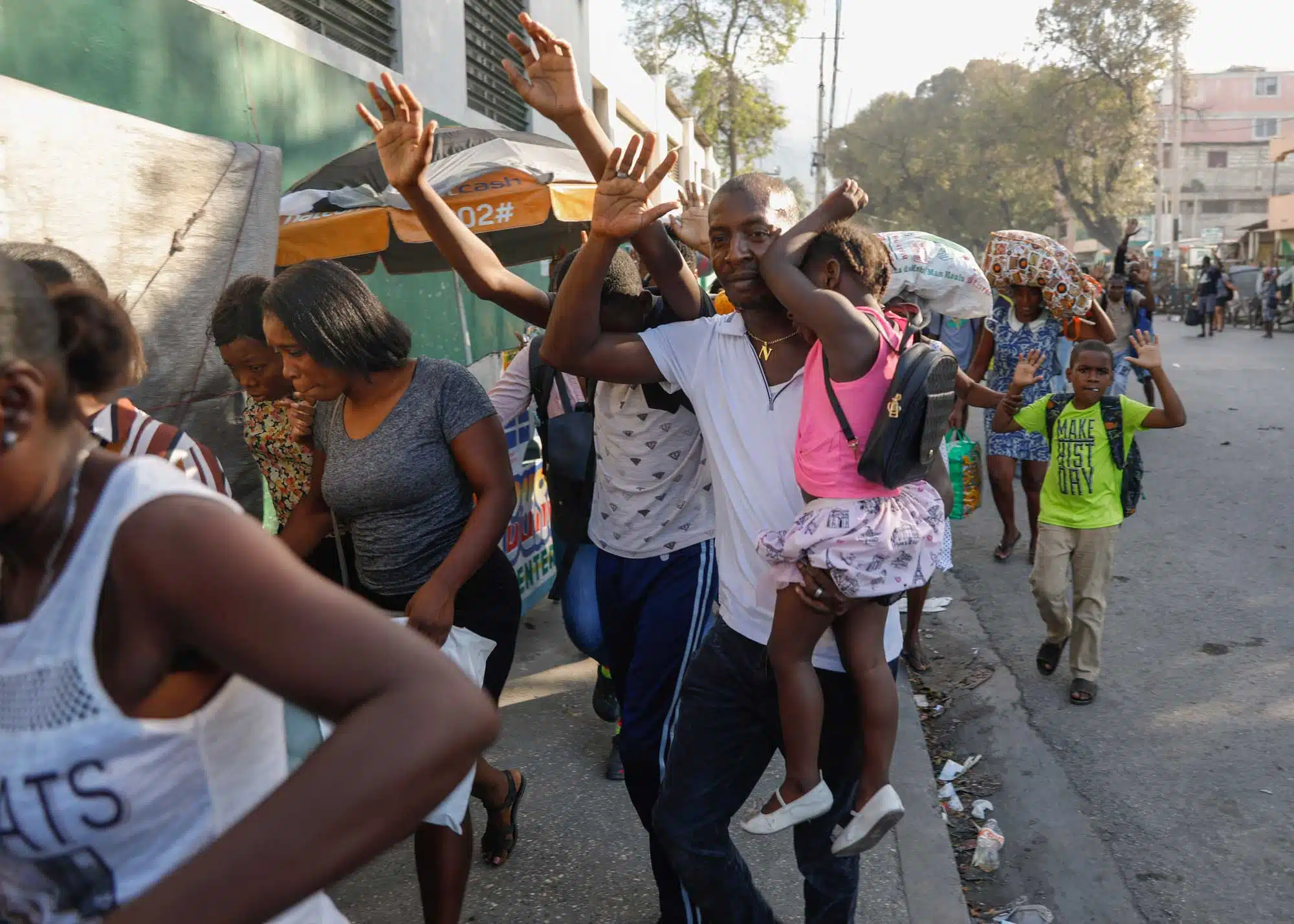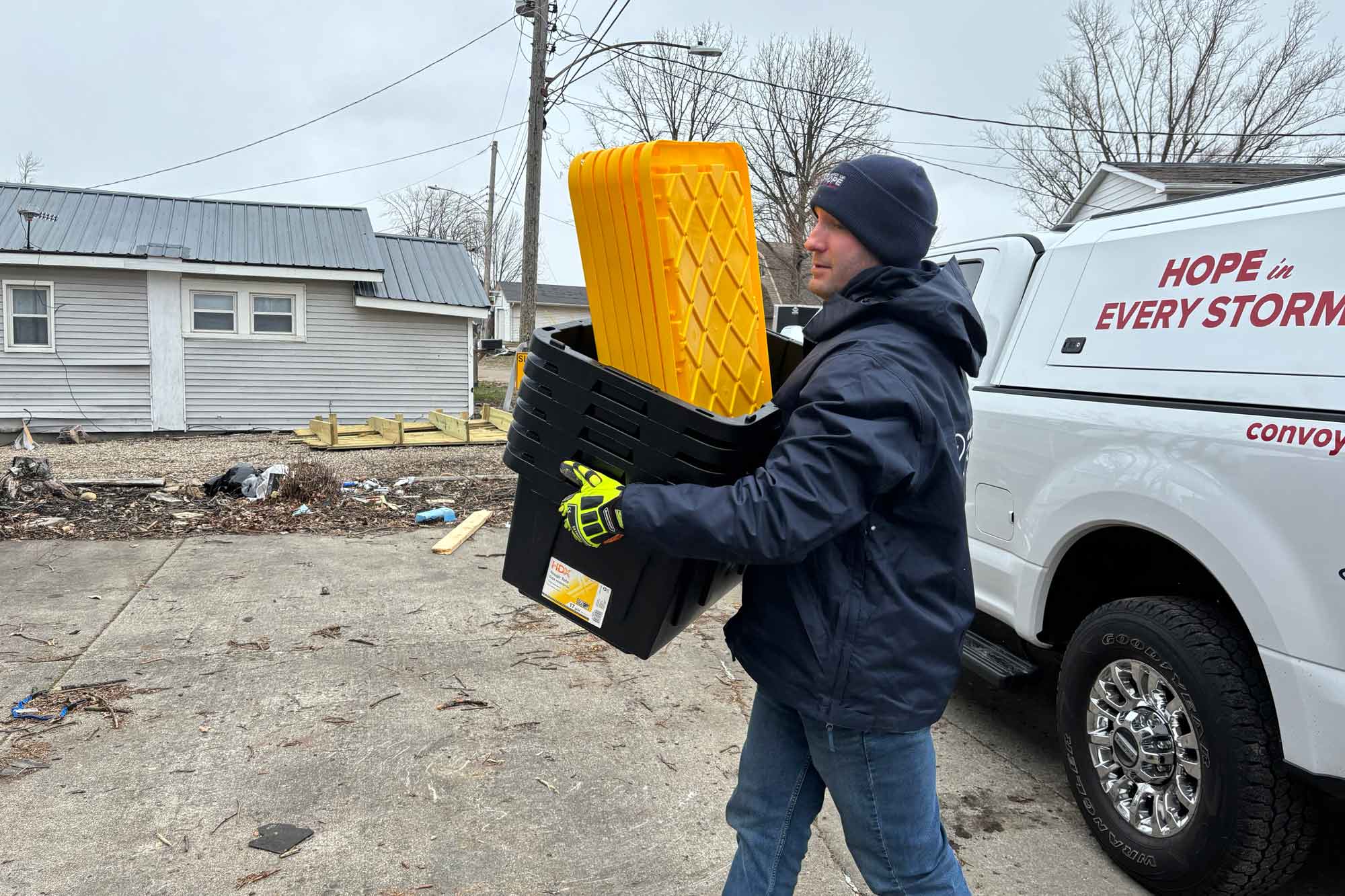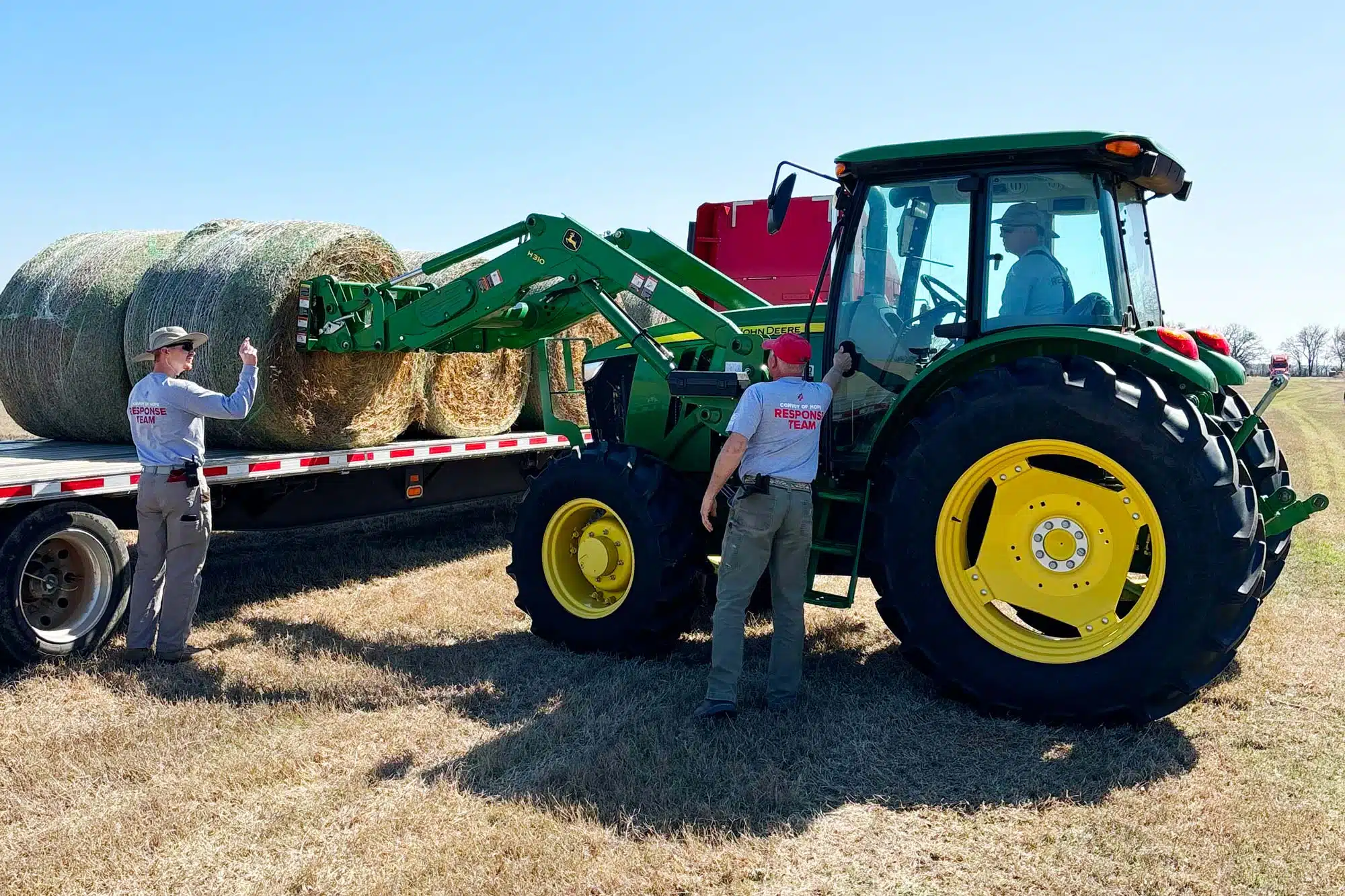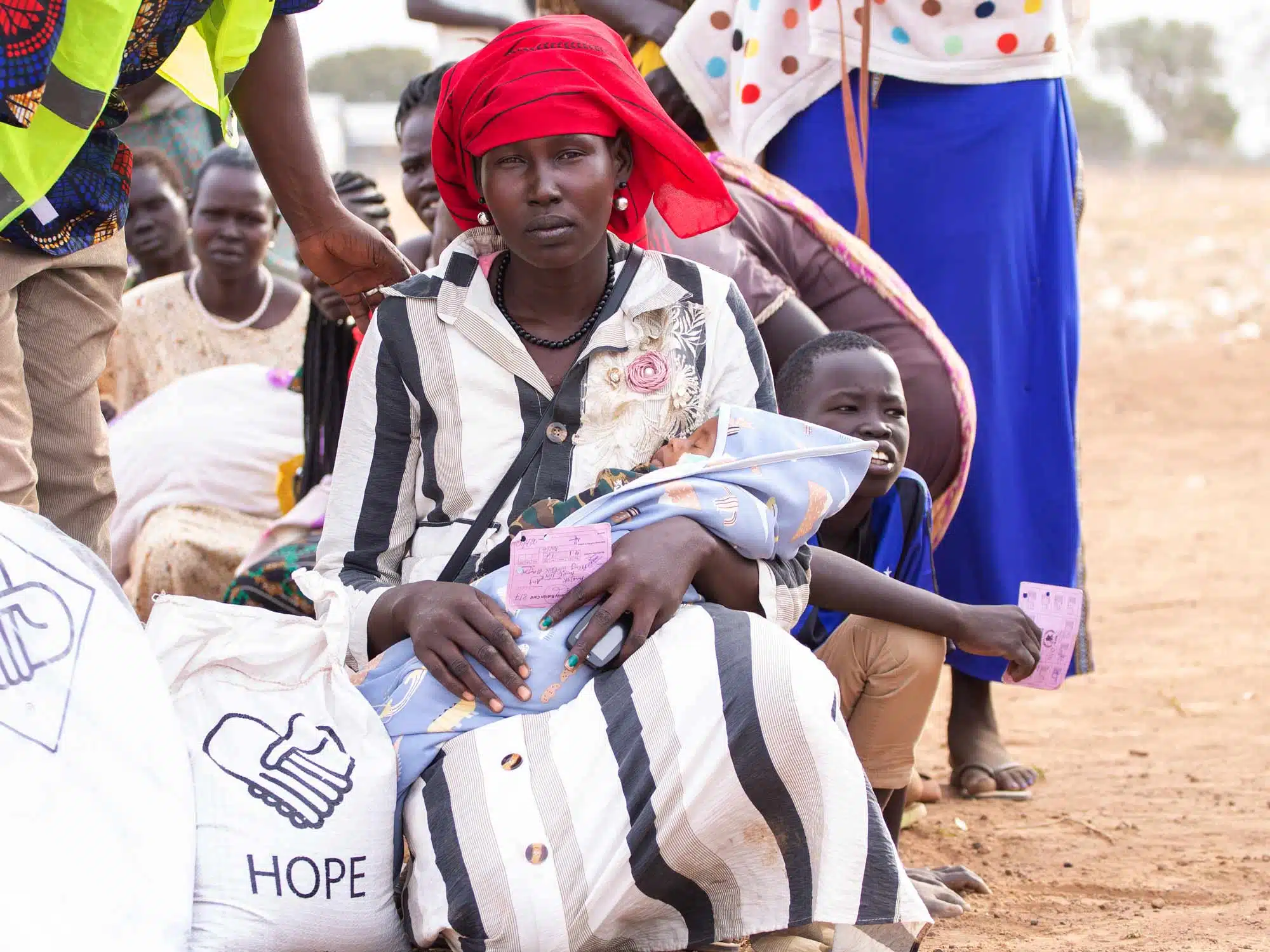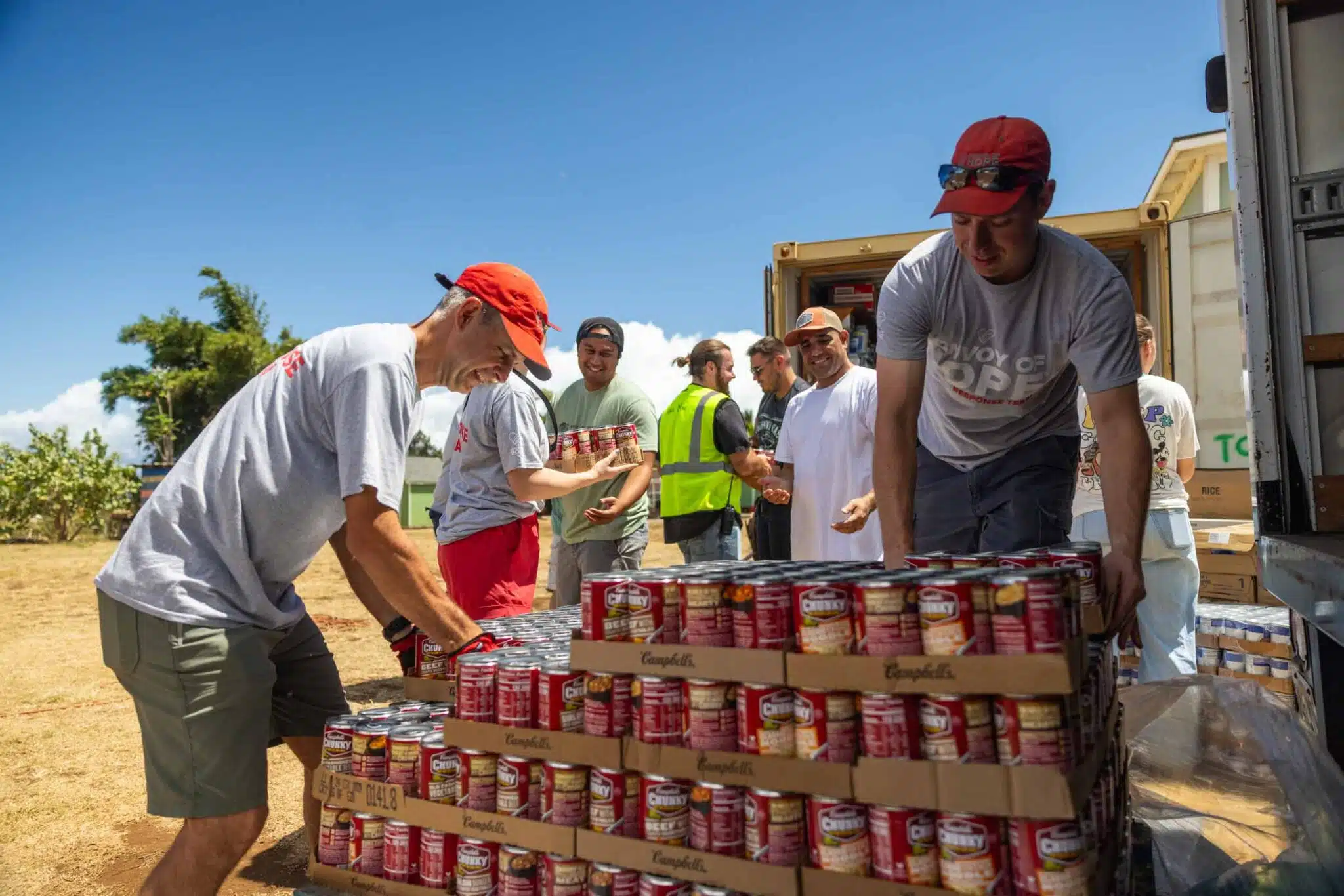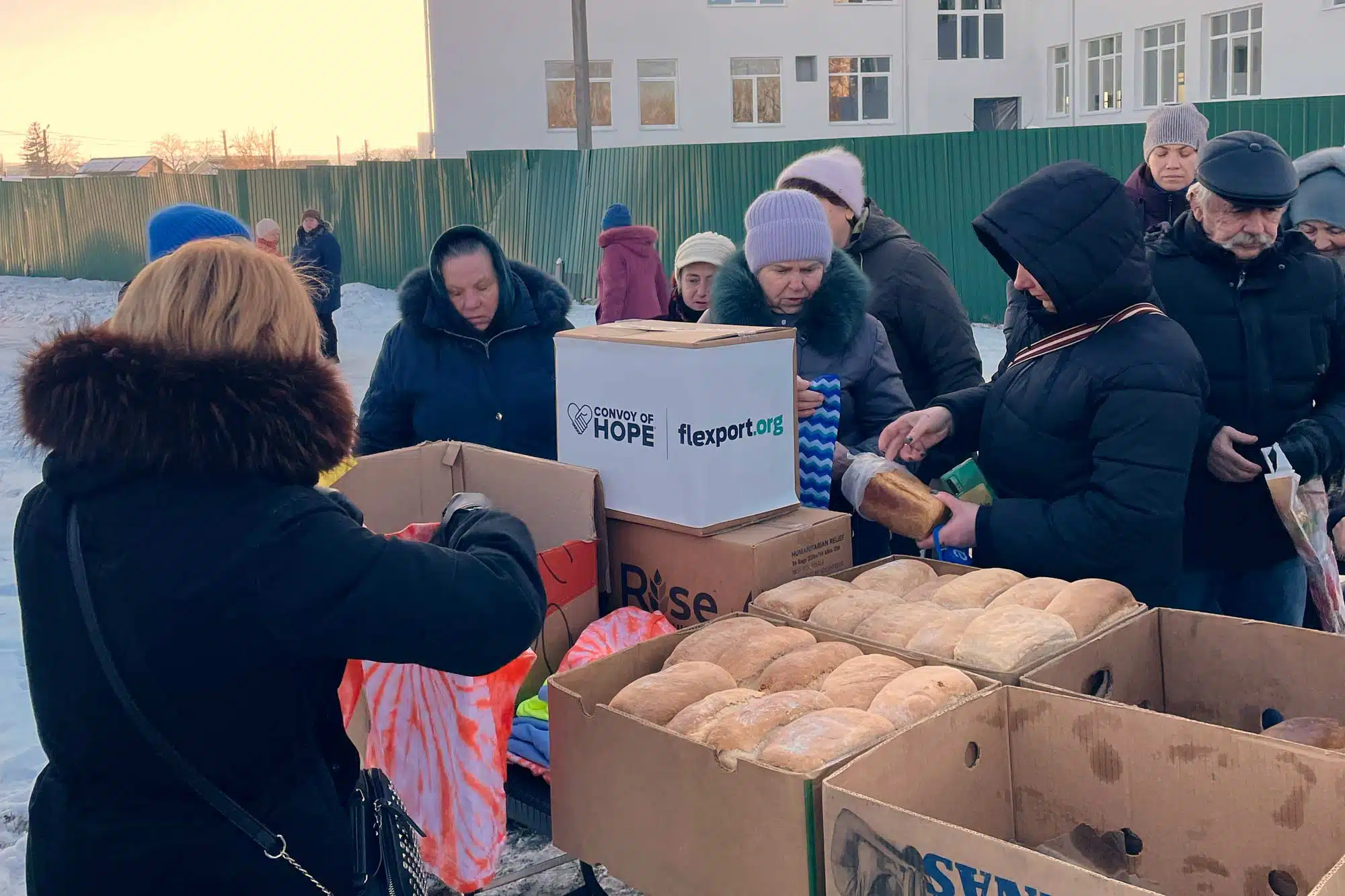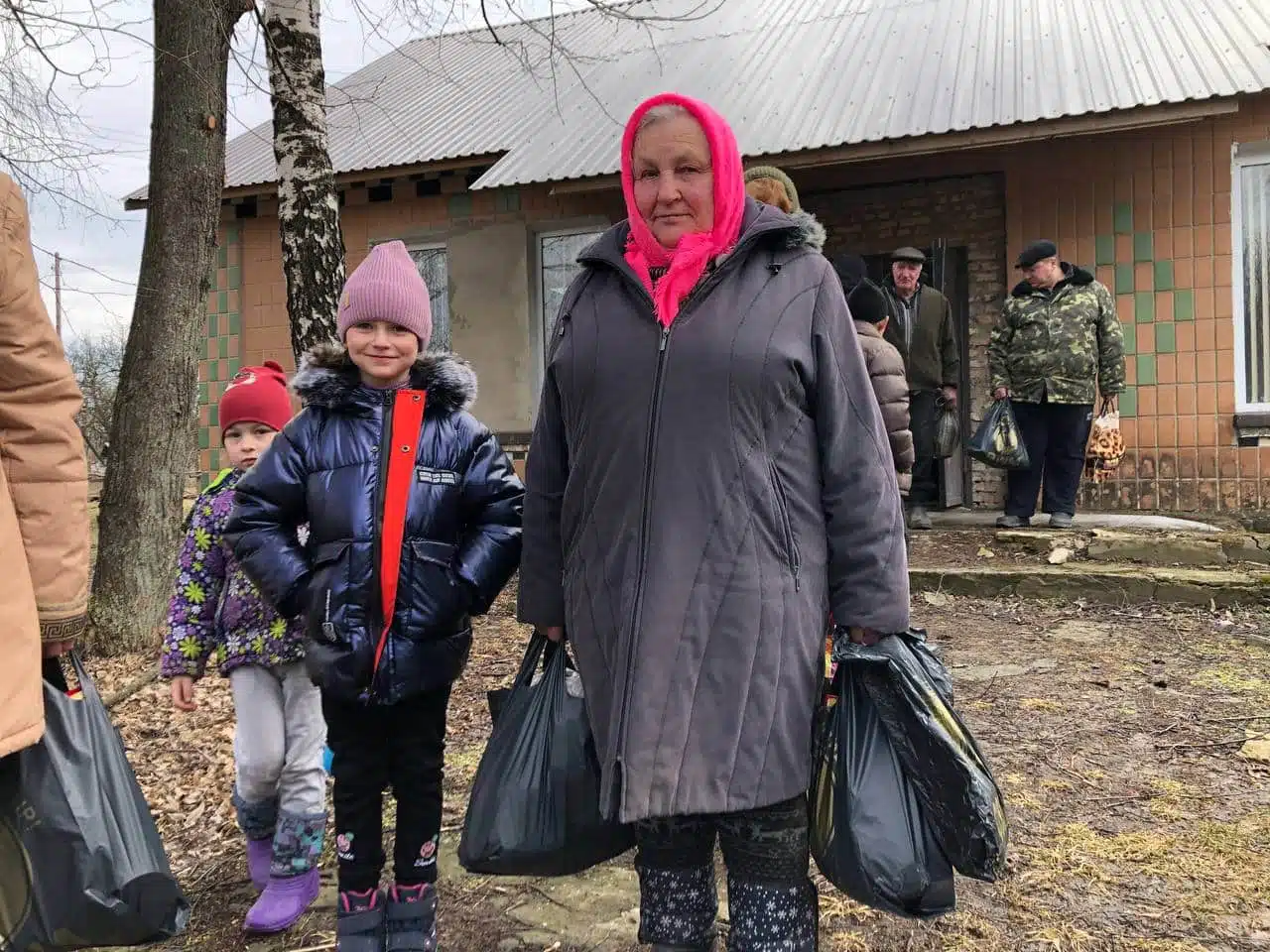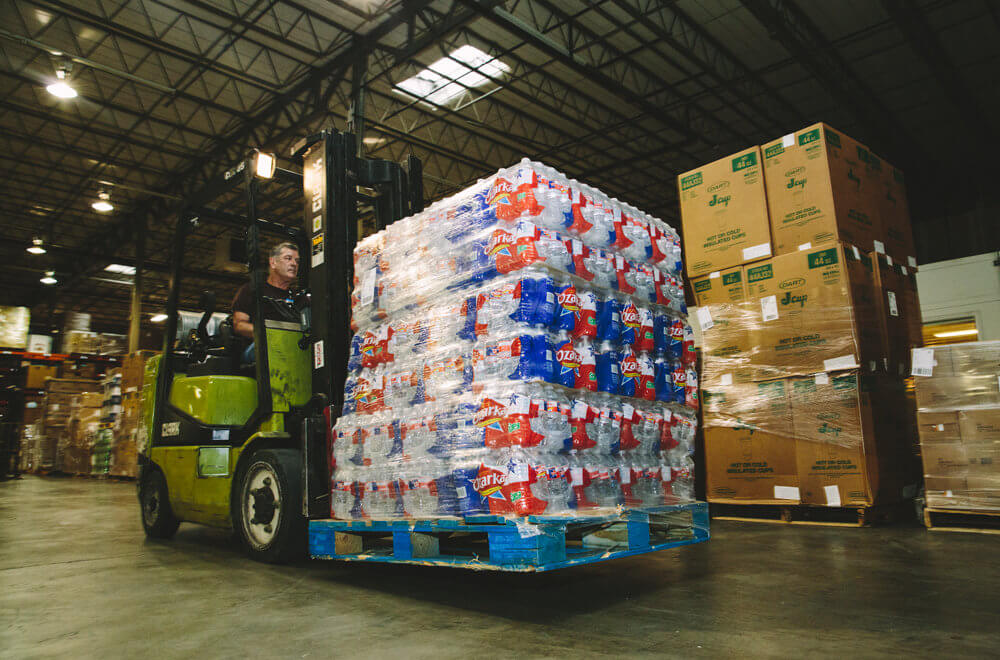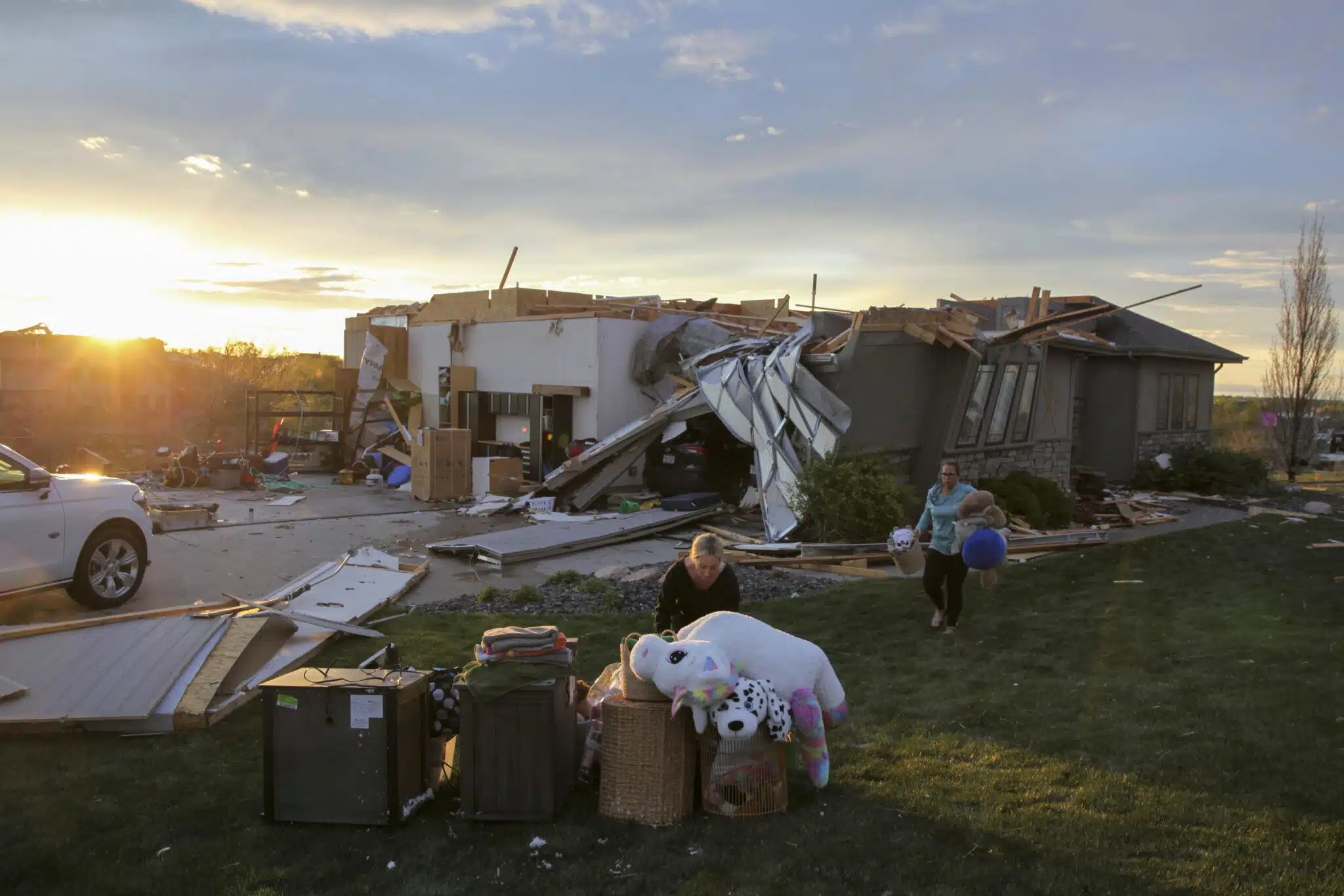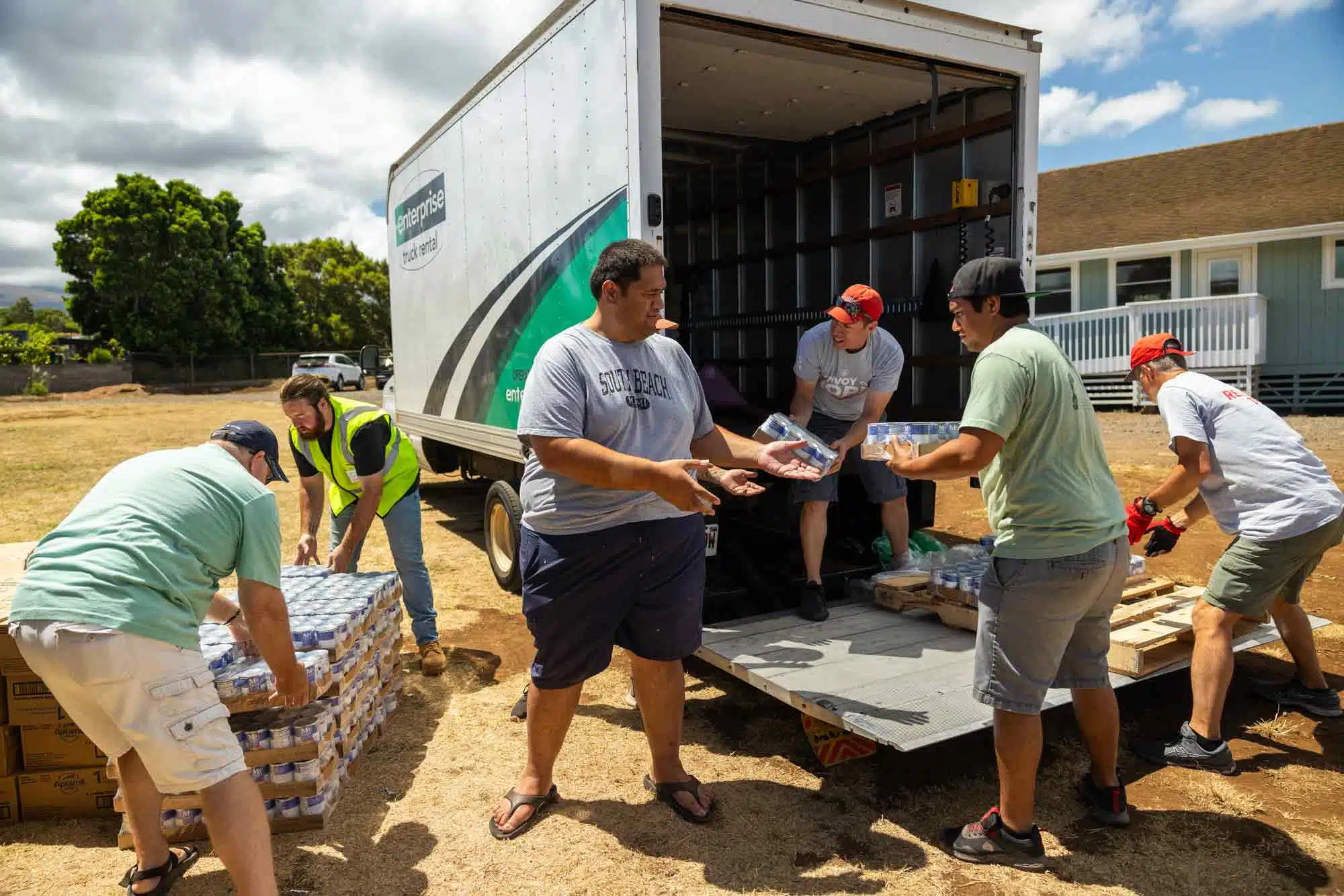Cyclone Freddy Devastates Southeastern Africa: Response Underway
May 10, 2023 | 12:46 p.m.
Over the course of ten days in February and March, Cyclone Freddy rapidly intensified on two occasions, hitting Madagascar twice and making a second landfall in northern Mozambique. One of the hardest hit places was Malawi, where incessant rains caused catastrophic flash floods.
Convoy of Hope is on the ground in Malawi, holding distributions of vital supplies like food and water for people affected by the cyclone and subsequent flooding. Last week, the poor road conditions made distribution difficult, as the truck carrying the food became stuck in the deep mud.
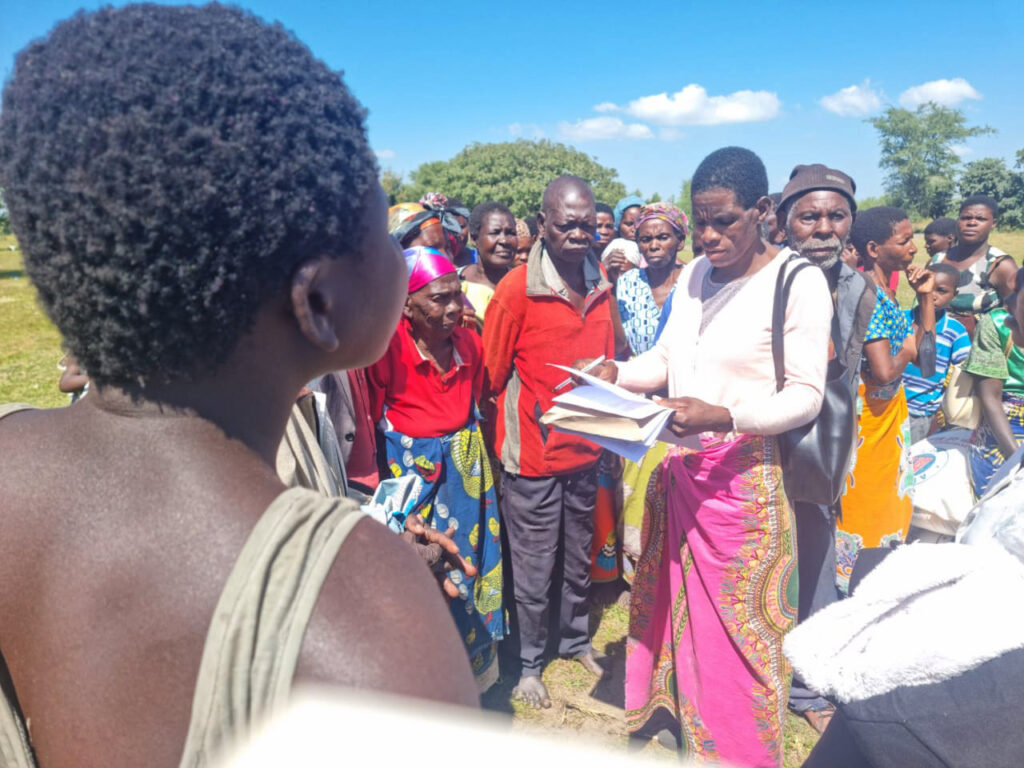
But Convoy’s team persevered. Distributions were held roadside and residents came to the site to carry back back to the village.
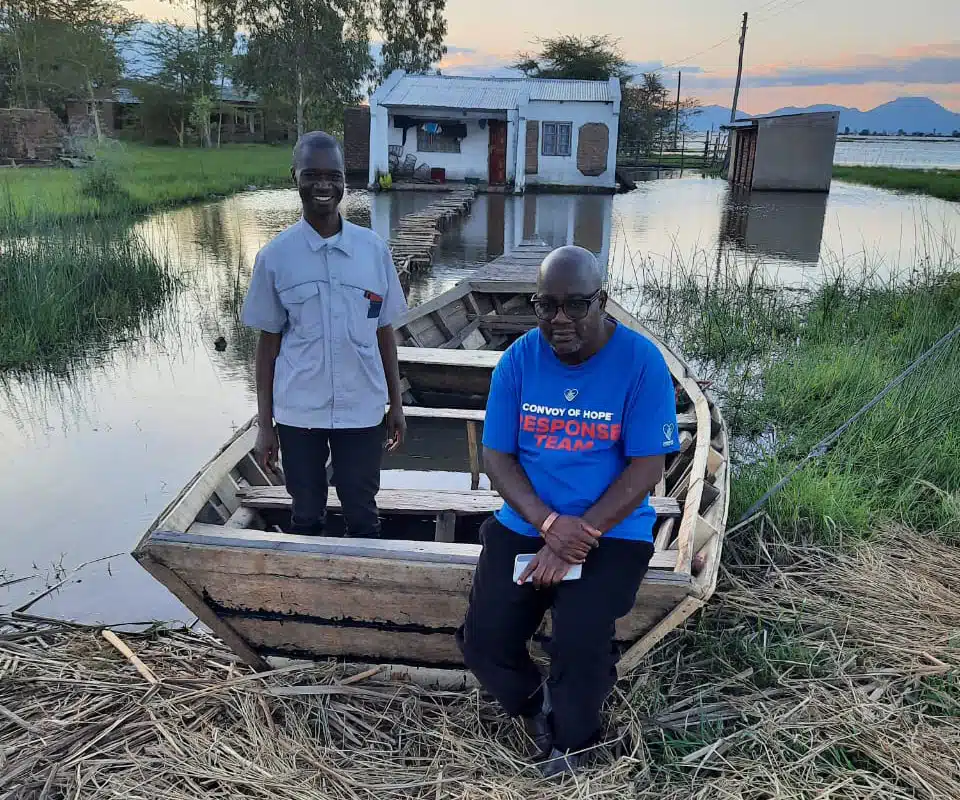
Floodwater in Kachulu — an area of Malawi devastated by Cyclone Freddy — has not receded enough to plant crops. Rain continued to fall through April, contributing to the incredibly muddy conditions overall.
Even when Convoy’s teams face obstacles, they do everything they can to make sure vulnerable people get the supplies they need to survive. Convoy of Hope remains committed to bringing hope in every storm.
April 17, 2023 | 2:15 p.m.
Convoy of Hope continues to provide aid in Malawi, where teams have distributed more than 64,000 meals to survivors of Cyclone Freddy. Before the storm, roughly 4 million people in Malawi were already food insecure. Convoy anticipates the need for relief will grow.
Though the storm has passed, several communities still face flooding and are difficult to travel through. Deep mud brings challenges to relief efforts, but Convoy’s teams are creative and will do whatever it takes to get essential resources to survivors.
Cyclone Freddy and its subsequent flooding swept away entire homes. There are people who have lost everything. Entire communities are displaced as people gather on higher ground to wait for the water to recede.
Convoy of Hope is working with partners to provide more food, water filters, and hygiene kits for people devastated by the damage. The need is high in Malawi, but Convoy is there to continue providing hope in every storm.
April 4, 2023 | 2:15 p.m.
Tropical Cyclone Freddy — a more than 5-week-long storm that ravaged regions on both sides of the Indian Ocean — has officially broken the record for the longest-lasting tropical cyclone in the world. The storm killed 858 people across Mozambique, Madagascar, and Malawi.
Freddy also holds the record for most Accumulated Cyclone Energy — accumulating as much cyclone energy as an average full North Atlantic hurricane season. The storm had seven separate cycles of rapid intensification over its course of destruction.
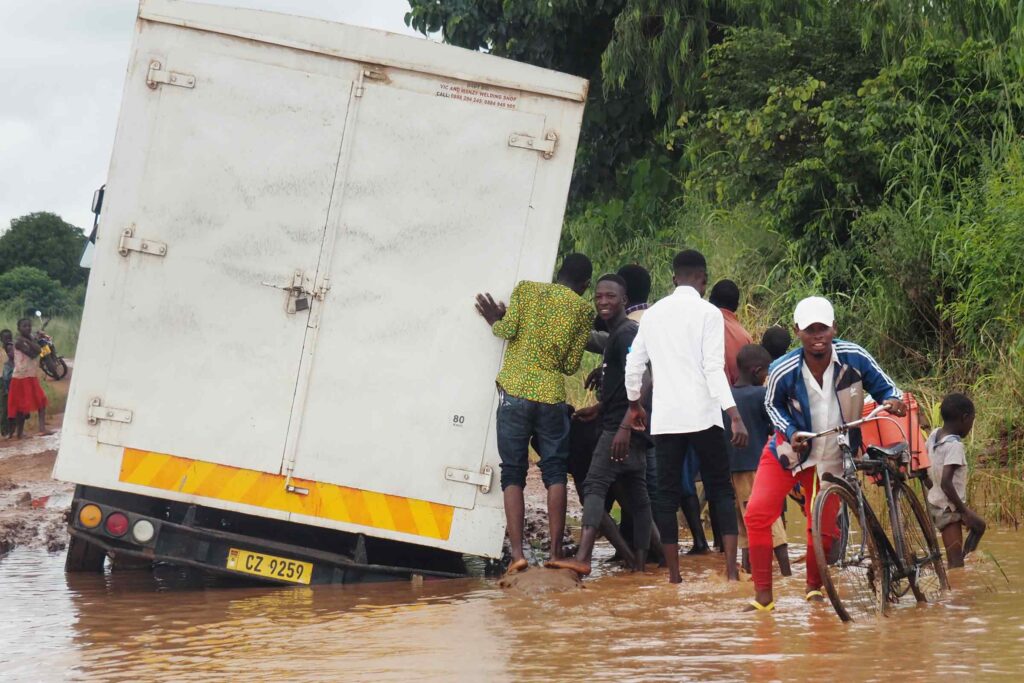
As a result of the intense flooding, more than 660,000 people are displaced in Malawi and Mozambique. Many are living in temporary shelters. This combined with the largest cholera outbreak in 20 years is a recipe for further disaster.
Convoy of Hope is working to mitigate as much turmoil as possible. So far, teams have distributed more than 19,000 meals and dozens of water filters and hygiene kits to survivors. Distributions have taken place in several communities, including a remote village in the southern region of Malawi.
Teams are regularly purchasing and distributing local resources, such as soy cubes and menstrual health products. This is in addition to essential items that were donated by a nearby church, which included corn flour and clothing.
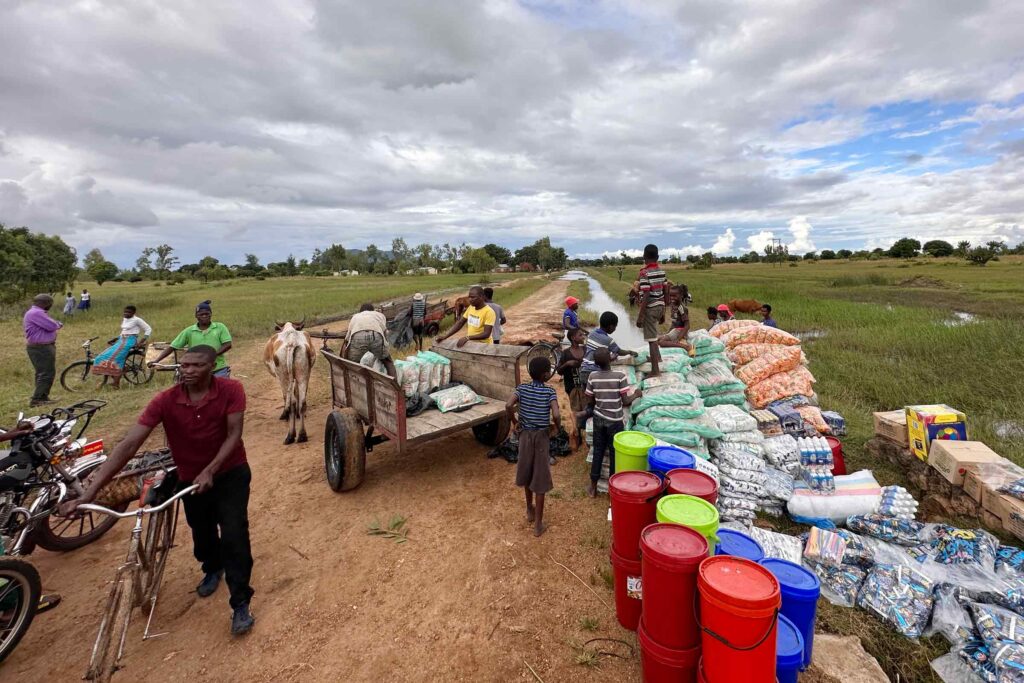
Unfortunately, before Cyclone Freddy even formed, roughly 4 million people were facing food insecurity in Malawi. The flooding destroyed close to 297,000 acres of farmland, increasing the lack of food for already food-insecure individuals and families.
In Mozambique, more than 21,000 cholera cases continue to overwhelm eight out of the country’s 11 provinces. Cyclone Freddy damaged 163 health facilities, meaning this number is only expected to rise.
Convoy of Hope fully recognizes the severity of the physical and emotional turmoil caused by Cyclone Freddy, which is why teams will remain committed to providing long-term relief. To join Convoy in meeting people in some of their darkest days, donate today.
March 24, 2023 | 10:54 a.m.
Convoy of Hope is working with local partners in Madagascar, Malawi, and Mozambique to provide relief to survivors of Cyclone Freddy. Freddy — an exceptionally long-lived, powerful, and deadly storm — traversed the southern Indian Ocean for more than five weeks. Forming on February 4, it made landfall in Madagascar on February 21. A short time later, Freddy made a second landfall in Mozambique.
Unexpectedly, the system managed to survive after weakening overland and emerged back over the Mozambique channel in the beginning of March. Over the course of 10 days, the storm rapidly intensified twice, hitting Madagascar again and making another landfall in northern Mozambique. It finally dissipated on March 14, leaving behind a terrible amount of destruction.
“The cyclone has left an appalling humanitarian situation in its wake … increased and concerted humanitarian assistance is needed,” said World Health Organization Regional Director for Africa Matshidiso Moeti, as quoted by the Associated Press.
Infrastructure in the impact zone is widely damaged. Freddy destroyed houses, crops, roads, and hospitals as it ripped through southeastern Africa. Some parts of the region received more than 12 inches of rain, triggering catastrophic flash floods in Malawi. The Associated Press is reporting more than 600 deaths.
Additionally, Freddy hit amid a severe outbreak of cholera in the region, compounding the epidemic. Fears of increased malnutrition among the thousands of displaced families bring a sense of urgency to the situation.
Cyclones, hurricanes, and typhoons are all the same type of intense storm. The difference is where the storm forms. Freddy formed over the Indian Ocean, classifying it as a cyclone. Tropical cyclones typically last for days or even weeks. But Cyclone Freddy exceeded expectations and lasted over a month, securing its spot as the longest lasting cyclone in recorded history.
To donate to the relief efforts for Cyclone Freddy, click here.
